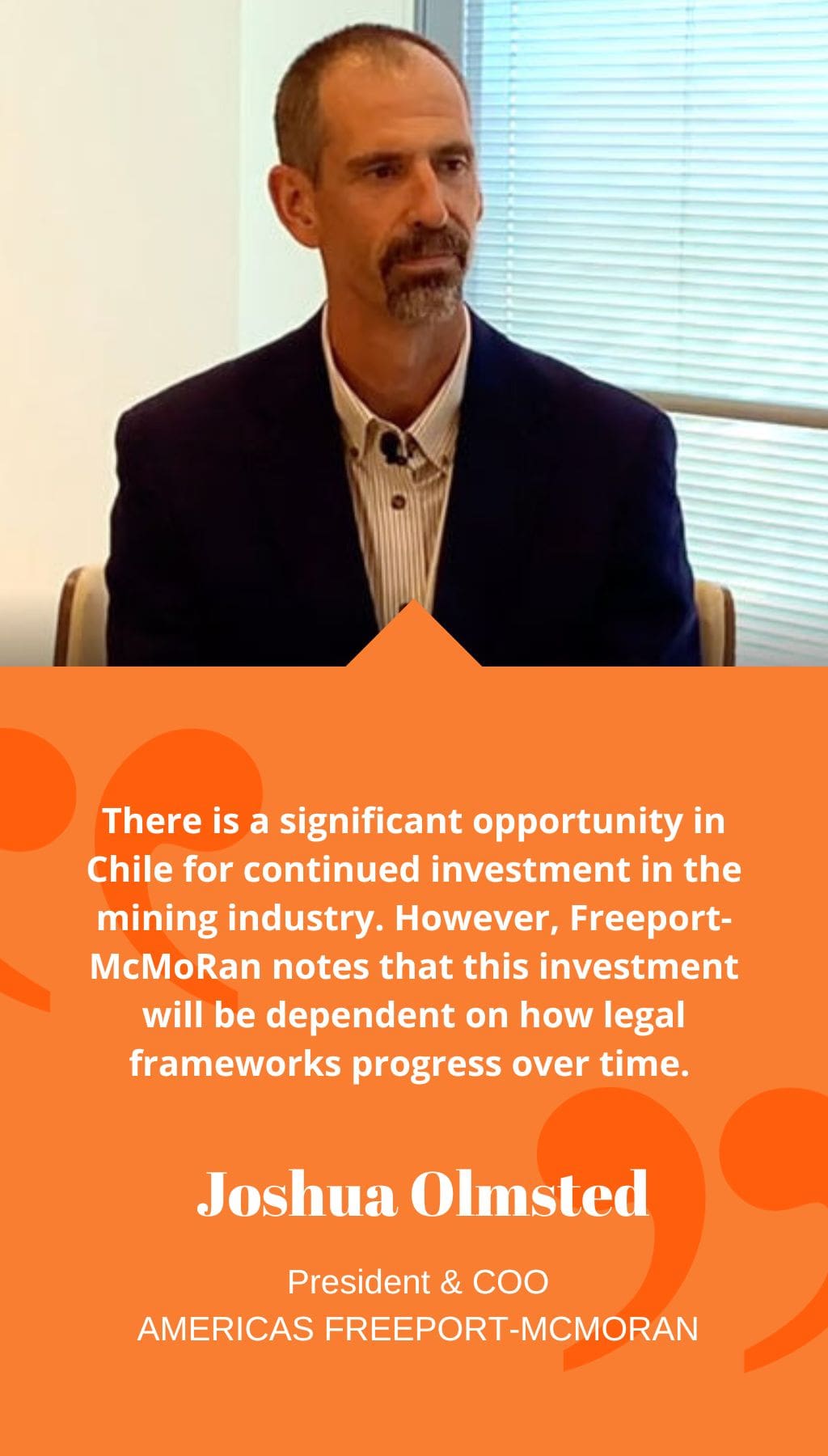
- Chile | 11 April 2022

Could you please provide an overview of Freeport-McMoRan’s operational performance in Chile in 2021 and its plan for ramping up production at El Abra in 2022?
In 2021, Freeport-McMoRan in Chile underwent a year of transition and planning for the future. Despite the challenges posed by the COVID-19 pandemic, the company considered the year to be very successful in the grand scheme of things. In 2022, Freeport-McMoRan has been focused on ramping up production at El Abra to pre-pandemic levels, which it expects to achieve later in the year. The company aims to produce between 200 million to 250 million pounds of copper annually going forward. Additionally, Freeport-McMoRan is in the process of constructing a new leach pad to stack material on. During the height of the pandemic, the company had been doing campaign maintenance and operations, and the focus of the ramp-up process now is to revert back to a 24/7 way of operating, which is all about planning and scheduling rather than overcoming technical hurdles.
What is the potential for expansion at El Abra to grow the oxide open-pit and develop the sulfide resource underground?
El Abra is a world-class resource that Freeport-McMoRan has been drilling for many years to gain a better understanding of the ore body. It presents a significant opportunity for the company in the long term, particularly on the sulfide side. The company is also drilling to see if there are opportunities to extend the current operation while moving forward with sulfide planning. Historically, Freeport-McMoRan has done a lot of work on the engineering side, but this year, the focus is on being prepared to submit an EIS for the mill sulfide project, as well as ongoing stakeholder engagement.
What could the reforms to the Chilean constitution mean for Freeport-McMoRan’s investments in the country?
There is a significant opportunity in Chile for continued investment in the mining industry. However, Freeport-McMoRan notes that this investment will be dependent on how legal frameworks progress over time. Uncertainty in the last couple of years has caused many to step back and see how this plays out before making any major decisions on future projects. A degree of fiscal and regulatory certainty is needed in the environment in which companies operate. If there were more clarity, the company would be moving faster on the El Abra project. Freeport-McMoRan is hopeful that the process will conclude in a manner that will be beneficial to all parties.
Could you provide examples of some of Freeport-McMoRan’s most tangible ESG initiatives in Chile?
Freeport-McMoRan takes ESG issues seriously and has been focused on key issues surrounding ESG in Chile for many years. For example, El Abra was the first operation in Chile to be certified under The Copper Mark, and Freeport-McMoRan is also a member of ICMM, so the company works under those principles. Regarding biodiversity, diversity, water, and communities, the company has made several efforts. El Abra was the first private mining company that was certified under Chile’s voluntary gender equality and work-life balance ordinance. On the water side, the company has partnered with communities in the Atacama since 2009 to provide desalinated water, and it continues to help operate and maintain this plant today.














